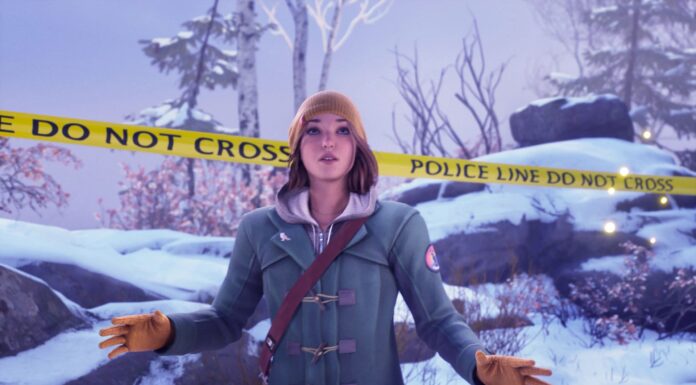Tartarus, according to developers Abyss Gameworks, is an action adventure puzzler. During the 8 hours this reviewer spent with Tartarus (there was an awful lot of trial and even more error involved), there was pretty much zero action, but the puzzles were a highlight, and marked Tartarus out as a game with some very unique ideas. There are problems here however, chief among them being the fact that the level design falls off a cliff after the first two or so hours.
This is a world where interstellar travel is the norm but computer technology hasn’t progressed past MS-DOS
No Easy Fixes
Tartarus casts you as the cook on a spaceship when something goes wrong. The player is directed by Andrews, a disembodied voice. Andrews directs the player to different areas of the spaceship that require repairs, or calibrations. What sets Tartarus apart is the fact that the player, when sent to the engine room, is not then tasked with finding a large red button labelled “Fix the Engine and Make Ship Go”.

Hardware and Software Needs Updating
As mentioned in the introduction, while at first the setting is interesting, the shine quickly fades. The ship has a charming aesthetic ripped from 70’s and 80’s sci-fi films such as Blade Runner and Alien. This is a world where interstellar travel is the norm but computer technology hasn’t progressed past MS-DOS running on the BBC Micro. The first couple of rooms the player finds themselves in look great. The texture work and lighting are excellent and the rooms at the beginning of the game have a wonderfully lived in feel. The bridge of the ship is strewn with used coffee cups and jackets from the crew, there’s plenty of personality on display in the beginning.

Taking a Turn for the Boring
Eventually, when you venture further into the ship the level design deteriorates into a series of empty rectangular rooms lacking any sort of personality. Often in games like this where the player character is left on their own for the vast majority of the game the world is given some flavour and depth. This is often achieved through journals and memos to read, Tartarus unfortunately, doesn’t include any of this and its absence was noted.
The puzzles can be extremely difficult but there is a clear line of logic running through them
Where the fun is
The puzzles are the highlight in Tartarus. Your character is a cook, almost totally lacking in technical know-how. The player gets some guidance from Andrews the aforementioned disembodied voice and it’s up to the player to figure out how to complete the task. The puzzles are text based; the player will access crew-members terminals and fix what needs fixing. This reviewer has never used Linux, according to research around the game the OS the player uses in Tartarus is based on BASH.

Cooper’s exasperation is, at times, hilarious
Doing Things for Good Reasons
The player is given coherent and plot relevant reasons for completing the puzzles and that was appreciated. The puzzles include networking workstations, correcting the amount of pressure in pneumatic doors so they will open, sending distress signals. The player will search directories for the correct programs, read through .txt files for the correct calibrations for different workings on the ship. The puzzles can be extremely difficult but there is a clear line of logic running through them and that is appreciated. The developers recommend keeping a pen and paper for notes and that was good advice. The way these puzzles are presented also adds several layers of immersion to the gameplay.

Nice Talking to You
The voice acting is uniformly great in this title. The player character Cooper voices his frustration at tasks that are clearly beyond his remit. The acting is believable and Cooper’s exasperation is, at times, hilarious. The rest of the sound design is functional; most of the player’s time on the ship is spent in silence broken by the hum of a workstation and the tapping of a keyboard.
the advice here would be, wait for a sale
No Reason for a Return Visit
There isn’t going to be much here in terms of replayability, once every puzzle is solved there doesn’t seem to be a reason to play through again. The price point is also bit too high for the product that is on offer, this is however a fun experience and if what you’ve read sounds interesting, the advice here would be, wait for a sale.

Things fall apart
Tartarus is a game with many elements that gradually decrease in quality as the game progresses. All of these elements however, are just window-dressing for the meat of the game which is the puzzles. I would have happily spent the entirety of the game in a single room completing puzzles to fix issues in the ship as they arose, rather that wander around the increasingly bland environments which really speaks to the strength of the puzzles.
















